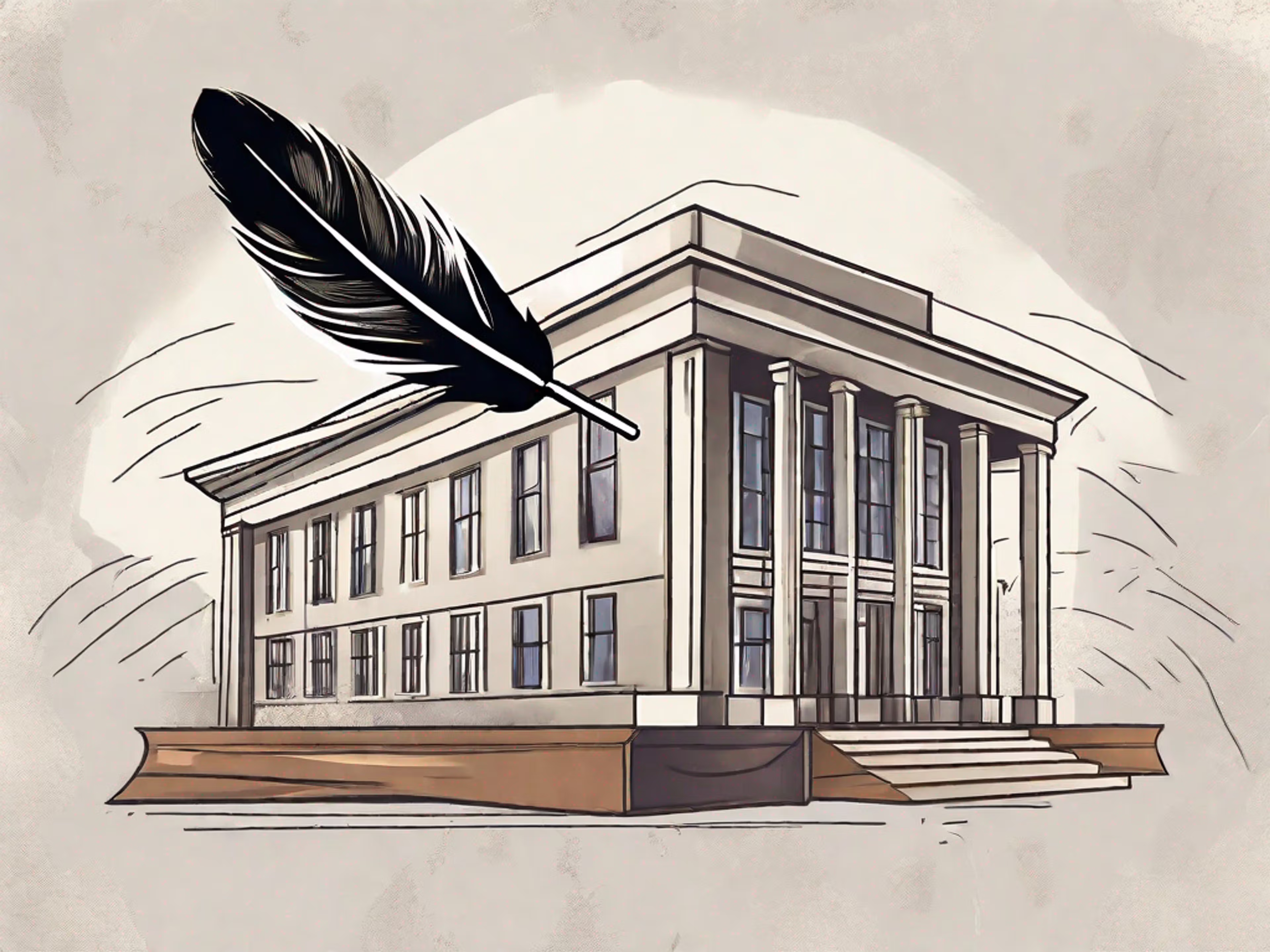
Table of Contents
Free Event

Featuring Breanne W.
Break the Mold: MBA Tips for Non-Traditional Backgrounds
Starting Wednesday, May 14
12:30 AM UTC · 45 minutes

Featuring Breanne W.
Indiana University Kelley School of Business is renowned for its rigorous MBA program that produces highly skilled graduates. As part of the application process, the school requires letters of recommendation from individuals who can provide valuable insight into the applicant's character, achievements, and potential for success. In this comprehensive guide, we will explore the role of letters of recommendation at Indiana Kelley and provide helpful tips and examples to assist both applicants and recommenders.
Brief Intro to Indiana University Kelley and The Role of Letters of Recommendation
Indiana University Kelley School of Business, located in Bloomington, Indiana, is consistently ranked among the top business schools in the United States. Its MBA program combines a strong academic foundation with real-world experiential learning, preparing students to excel in diverse professional settings.
The letters of recommendation play a crucial role in the application process at Indiana Kelley. The admissions committee carefully reviews these letters to gain an understanding of an applicant's abilities, leadership potential, and fit with the program's values and culture. These letters provide additional perspective beyond the applicant's self-presentation through essays and interviews.
When it comes to the application process, Indiana Kelley understands the importance of a holistic evaluation. While academic achievements and test scores are certainly considered, the admissions committee recognizes that they only provide a limited view of an applicant's potential. This is where letters of recommendation come into play.
Letters of recommendation offer a unique opportunity for individuals who know the applicant well to provide valuable insights into their character, work ethic, and potential for success. These letters are typically written by professors, employers, or other professionals who have had the opportunity to observe the applicant's abilities firsthand.
At Indiana Kelley, the admissions committee values letters of recommendation that provide specific examples and anecdotes to support their claims about the applicant. They want to see evidence of the applicant's leadership skills, teamwork abilities, and problem-solving capabilities. These letters help the committee understand how the applicant has made an impact in their previous academic or professional environments.
Furthermore, letters of recommendation also serve as a way for the admissions committee to assess an applicant's fit with the program's values and culture. Indiana Kelley is known for its collaborative and supportive community, and the committee wants to ensure that admitted students will contribute positively to this environment. Letters of recommendation can shed light on an applicant's interpersonal skills, their ability to work well with others, and their potential to be a valuable member of the Kelley community.
Overall, letters of recommendation are a crucial component of the application process at Indiana Kelley. They provide the admissions committee with valuable insights into an applicant's abilities, potential, and fit with the program. Applicants should carefully choose recommenders who can speak to their strengths and provide specific examples to support their claims. By doing so, they can enhance their chances of being admitted to this prestigious business school.
Indiana Kelley Recommender Questions (2023-2024)
If you have been asked to write a letter of recommendation for an Indiana Kelley MBA applicant, you may be curious about the questions you will be asked to address. While the specific questions may vary from year to year, the school typically asks recommenders to comment on the applicant's professional accomplishments, interpersonal skills, leadership potential, and areas for development.
Writing a letter of recommendation is an important task that requires careful consideration of the applicant's qualifications and potential. As a recommender, you have a unique perspective on the applicant's abilities and can provide valuable insights into their character and achievements.
- How long have you known the applicant and in what capacity?
Knowing the duration and nature of your relationship with the applicant is crucial in understanding the depth of your knowledge about their abilities. Whether you have worked closely with the applicant for several years or have had a more limited interaction, your perspective will offer valuable context to the admissions committee.
- In what ways has the applicant demonstrated exceptional leadership skills?
Leadership is a highly sought-after quality in MBA candidates, and the admissions committee is interested in understanding how the applicant has showcased their leadership abilities. It could be through leading a team to achieve remarkable results, initiating innovative projects, or inspiring others through their vision and actions. Sharing specific examples of the applicant's leadership qualities will help paint a vivid picture of their potential.
- Can you provide an example of a challenging situation the applicant encountered and how they handled it?
The ability to navigate and overcome challenges is a critical skill in business. By sharing an example of a difficult situation the applicant faced, you can demonstrate their resilience, problem-solving abilities, and adaptability. Highlighting how they approached and resolved the challenge will provide the admissions committee with valuable insights into their decision-making and critical thinking skills.
- How would you describe the applicant's ability to work effectively in a team?
Collaboration and teamwork are essential in the business world, and the admissions committee wants to assess the applicant's ability to work harmoniously with others. Reflecting on the applicant's teamwork skills, you can discuss their ability to communicate effectively, contribute to group dynamics, and foster a collaborative environment. Providing specific examples of successful team experiences will help showcase their interpersonal skills.
- What are the applicant's greatest strengths and areas for development?
Every applicant has unique strengths and areas for growth. By identifying the applicant's greatest strengths, you can shed light on their standout qualities that make them a strong candidate for the MBA program. Additionally, discussing areas for development demonstrates your ability to provide constructive feedback and highlights the applicant's potential for growth and improvement.
These questions are designed to elicit meaningful insights into the applicant's character, achievements, and potential for success in the MBA program and beyond. As you craft your letter of recommendation, remember to provide specific examples and anecdotes that showcase the applicant's abilities and potential. Your thoughtful and detailed response will greatly contribute to the admissions committee's understanding of the applicant's fit for the Indiana Kelley MBA program.
Expert Tips for Powerful Kelley MBA Recommendation Letters
Writing a powerful letter of recommendation requires thoughtfulness and careful consideration of the applicant's strengths and achievements. Here are some expert tips to help you craft an impactful letter:
- Take the time to understand the applicant's goals and accomplishments. This will enable you to highlight their most relevant strengths and experiences.
- Provide specific examples to support your claims. Concrete anecdotes that illustrate the applicant's skills and character are highly valuable.
- Address both the applicant's hard skills and soft skills. Highlighting their analytical abilities as well as their leadership and teamwork skills will provide a well-rounded portrait.
- Emphasize the applicant's potential for growth and future success. Admissions committees are looking for individuals who are not only accomplished but also capable of making significant contributions in their careers.
- Ensure your letter is well-structured and organized. Use clear paragraphs and provide a strong introduction and conclusion to create a cohesive narrative.
By following these expert tips, you can help the admissions committee gain a comprehensive understanding of the applicant's abilities and potential to thrive in the MBA program.
Example Indiana Kelley Letters of Recommendation From Successful Admits
Reading examples of strong letters of recommendation can be helpful when preparing to write your own. Here are a couple of examples from successful Indiana Kelley MBA admits:
- Aniket Sharma, an accomplished marketing professional, received an outstanding letter of recommendation that emphasized his exceptional leadership skills and his ability to drive impactful results in his previous roles. The recommender provided specific examples of projects Aniket had successfully spearheaded, demonstrating his ability to inspire and lead teams toward shared objectives.
- Emily Thompson, a finance professional with a deep passion for sustainable investing, received a glowing letter of recommendation that highlighted her dedication to driving positive change in the financial sector. The recommender spoke highly of Emily's analytical abilities and her commitment to merging financial goals with social responsibility.
These examples showcase the qualities and accomplishments that Indiana Kelley values in its applicants, providing insights into the type of applicants who are successful in their admissions process.
Indiana Kelley MBA Letters of Recommendation FAQs
1. How many letters of recommendation does Indiana Kelley require?
Indiana Kelley requires two letters of recommendation.
2. Is it better to choose recommenders who are familiar with my academic achievements or professional experiences?
Ideally, you should include recommenders who can provide insights into both your academic and professional abilities. This will give the admissions committee a well-rounded view of your potential.
3. Can I submit more than two letters of recommendation?
While Indiana Kelley's requirement is two letters, submitting additional letters is not recommended unless they provide unique and valuable perspectives that are not covered by the original two letters.
By following this comprehensive guide, you will be well-equipped to navigate the letters of recommendation process at Indiana University Kelley School of Business. From understanding the role of recommendation letters to providing expert tips and examples, this guide is designed to support both applicants and recommenders in crafting powerful and insightful letters. Best of luck with your application to the Indiana Kelley MBA program!


















